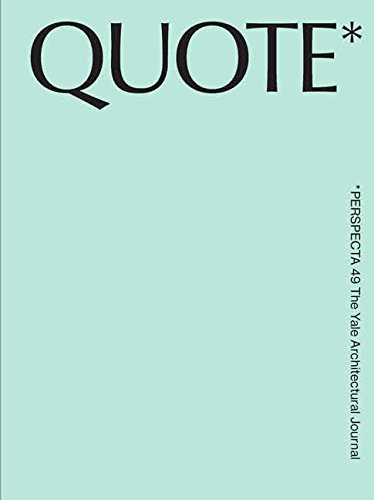
Every intellectual endeavor relies upon an existing body of knowledge, proven and primed for reuse. Historically, this appropriation has been regulated through quotation. Academics trade epigraphs and footnotes while designers refer to precedents and manifestos. These citations — written or spoken, drawn or built — rely on their antecedent, and carry the stamp of authority.
In the field of architecture, appropriation is faster, easier, and more conspicuous than ever, but also less regulated. These displacements are no longer self-referential games. Instead, buildings are copied before construction is completed. Digital scripts are downloaded, altered, and re-uploaded — transposing the algorithm, not the object itself. Design bloggers “curate” texts and images — copying and pasting, copying and pasting. In the sea of memes and GIFs, tweets and retweets, quotes are both innumerable and viral, giving voice to anyone with access to these channels.
Traditionally, the practice of quotation has inoculated the author against accusations of plagiarism. Today, the quicksilver nature of contemporary communications obscures chains of reference. Must we jettison conventions of authorship or will we establish new codes of citation?
This issue of Perspecta — the oldest and most distinguished student-edited architectural journal in America — explores the uneasy lines between quotation, appropriation, and plagiarism, proposing a constructive reevaluation of contemporary means of architectural production and reproduction. Although architecture is a discipline that prizes originality and easily ascribed authorship, it is important to recognize that quotation and associated operations are ubiquitous, intentional, and vital, not just palliatives to the anxiety of influence. These are perhaps the most potent tools of cultural production, yet also the most contested. Perspecta 49 welcomes the contest.
